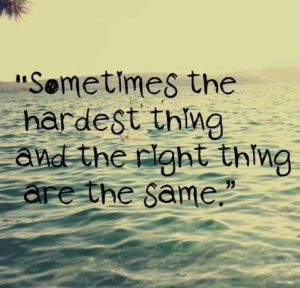Category Archives: Mental Training
“Race, Shame and Self-defence” by Sam Yang

#racerelations #race #racism #colonialism #martialarts
The Problem with the Education System
In response to this TedX talk by Eddy Zhong:

There should not be a clear duality of life choice as defined by these two paths, and I do not believe that it is suggested that a creative path is superior; it is only that the academic path is flawed and inadequate to serve the needs of a human. There are clear benefits to academic education as well. However academic performance is given far too much credit and is a product of an antiquated and inefficient education system which does not necessarily nurture the natural talents of a student. We spend far too much time learning things that have little relevance to our lives or careers.
A purely academic career that views lives and concepts as a collection of purely mechanical and measurable components dangerously separates mankind from the natural and creative world from which he/she biologically originates from. Without appropriate application of academic pursuits to the real world, the optimal leverage of applied knowledge cannot be achieved.
We should encourage students to discover their own strengths, purpose and natural talents through exploration of individual creativity, and integrate targeted and appropriate adoption of technical academic knowledge in a tailored fashion to each individual’s natural inclinations in such a way that we may optimise their abilities. Nurture our nature, not balance the influences of nature vs nurture as opposites, as we well know they are deeply interconnected.
Real Health vs Western Medicine
In response to the article “The Healthiest Old Person on the Planet.”

Real health lies in optimising the vastly under-utilized, yet essential and natural areas of diet and fitness, not western medicine, which should ideally be reserved primarily for dealing with circumstances of last resort, and less as a system of sustaining chronic illness. There is a significant lack of interest in implementing preventive lifestyle measures in public health and correcting the overall physical robustness of the population.
I’ve worked on my diet, worked on getting as functionally fit as possible, worked on correcting my posture, worked on correcting psychological issues, and worked on improving the quality of my social circle and environment over the last few years, among other things. I recently had an eye test, my eyesight has improved slightly. I look as young or younger than I did ten years ago. I am a superior being to what I was before.
In our most basic state, we are merely animals with opposable thumbs and slightly thicker cerebral cortexes; we must respect our primitive nature, and connection to nature, in order to maximise our potential. The key factors essential to our health, at the centre of our primitive nature, is how we connect to our sources of food, and the mobility of our physical bodies.
#Health #diet #fitness #ageing #westernmedicine #preventivehealth#personaldevelopment #selfimprovement
Re: The Mental Health of Doctors
Regarding this article from the Huffington Post:
Being A Doctor Should Not Have To Come With A Health Warning
Years ago, I asked the staff mental health consultant during her lecture at the lunchtime hospital “grand round” meeting whether selection of medical students should take into consideration their existing mental health.
In response, she essentially told me that being mentally ill was part of the profession, like being anxious and having OCD would help you do your job better…
I’d like to say that is certainly not true with the mentally ill health professionals that I’ve met... a large proportion are, and not just the doctors…
How many more suicides do we need to see before we fix the system? Ultimately do we really believe that having a doctor or (other health professional) run around the hospital spending an inordinate amount of their mental energy trying to control their anxiety and depression, potentially also physically undermined by the alcohol and drugs that they are taking to cope, is going to provide the best patient care?
Interestingly, in the news recently is this female doctor from Miami, who abused an Uber driver: ‘I am ashamed,’ doctor says after camera captures her attacking Uber driver

Medical professionals should be selected more carefully for the good of the profession and community; unless of course the dysfunctional process is part of the “medical-industrial complex” process to maintain the destabilization the health of the community for the sake of company profit, perhaps? Which would totally make sense.
I’ve met too many psychopaths, egotists, mentally ill and generally weird people in the medical profession, and wondered, how on Earth can we be entrusting the health of the community to these people?

Doing The RIGHT Thing For Yourself And Your Life
I saw this picture and felt the need to write something.

3 years ago, after many years of confusion, contemplation, and depression, I finally took action, sold my house, got rid of most of my things, and I left my mindless, miserable job. I moved overseas for 6 months, saw America, completed my business masters, saw Europe for the first time in my life, got off my fat slob ass and trained like I’ve never trained before to get in fighting shape, starting with visiting and training in Thailand for the first time in my life, and fought in the ring a few times. I finally got the specialized help I needed to fix my decade of complicated back problems, which included completing a personal training course in 3 months, stopped binge drinking, and fixed my diet. I ditched my old, selfish, asshole friends, figured out who my real friends were, gave 4 months 24/7 of my life to bail out my dad’s business, got shafted, and moved to a new city and permanently out of one I never belonged in (after spending over half my life there). I reconnected with as much extended family as possible here and overseas, made new, quality friends, started hammering again through more psychotherapy and personal development courses to deal with my longstanding psychological issues, and started a business. I generally started seeing new things, trying new things and getting out of my very small comfort zone, finally reconnected with doing the things that I love and enjoy, and am finally on my way to finding genuine purpose in my life.
I don’t know if that sounds like much, but I thought it was fairly difficult, having allowed external environmental influences to shape me from an early age to become a coward, a loser, a misfit, an outcast. Such forfeiture of personal dignity is truly unacceptable in a first world paradise where we have every opportunity to become almost anything we desire. I was someone who took the easy route of sitting at home mindlessly memorising a book to get a safe, miserable, secure job, to win meaningless academic accolades and earn some oddly coveted piece of paper, rather than going outside, breaking the mould, living true to my self, and taking grasp of my dreams. For what?
I now cannot lay blame to my parents, my environment, my asshole friends, my isolation, my genetics, though all of these may have created significant external pressures; no, there are no bullshit excuses; I alone am in charge of my life and my destiny. And perhaps everything you ever wanted IS that difficult and complex in your own mind to achieve. Perhaps the difficulty IS finding what you want! But for me, everything I thought was difficult was worth doing and yes, it was the right thing to do. And though I might have started my life a coward, I aim to not end it as one. I’m working on it.
Though ideally we should find and follow our purpose early in life to find optimal spiritual fulfillment, as change in adulthood is much more difficult, it is never too late to instigate change. Enjoy and trust in the process, be happy in the moment, and don’t become too attached to goals and outcomes, because it may take a while to get there! I’m just getting started. I hope to one day know that I have found myself again.
And if you can relate to any of that, then perhaps you might want to take a minute to consider if you need to make changes in your life. Take the first small step, and embrace the challenge of conquering your personal mountain. And when you reach the summit, maybe you will realise that it wasn’t that hard after all. Because it was, and always had been, the RIGHT thing to do.